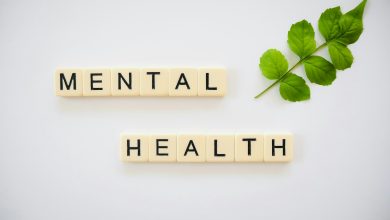I Overdosed With Him At 1, Woman Shares Amazing Story of Recovery

“This is my son. At about a year old, I overdosed with him in my bed. Well, it was just a mattress on my living room floor.
At 2, he had to come visit me in jail. He beat against the glass screaming and crying for his mommy. He started biting his nails after that.
At 3, he witnessed me get hit in the head with a brick, and my head split open. He rode with me in the ambulance. It scared him really bad.
At 4, he was in a car wreck with me, one of my many DUI’s.
At 5, my mother had to raise him most of the time. I barely even came home.
At 6, I lost full custody, and I went to prison.
He is 12 today. He lives with me. He attends a private Christian school. He is on the honor roll. He gets prayed with every night and his mommy is there to wake him up for school every morning. I celebrate all of his accomplishments with him, and he celebrates every sober birthday with me. I tell him how much I love him every day. He’s so kind to the broken because we were once broken. He’s truly so special.
Thank you God for allowing me to be a mother to this sweet boy every day. It’s the sweetest gift of my sobriety.”
Substance abuse is a global crisis that affects millions of lives every year. While the focus often centers on the individuals battling addiction, there is another, often overlooked, group that bears the brunt of this epidemic: their children. In communities around the world, countless mothers grapple with substance abuse, and the consequences for their offspring are far-reaching and deeply troubling. This article delves into the harsh reality faced by these mothers and the negative effects substance abuse has on their children.
Maternal Substance Abuse Statistics
• The numbers are staggering. Millions of women worldwide suffer from substance abuse, including drugs and alcohol.
• Studies show that maternal substance abuse during pregnancy is a growing concern, affecting 5-10% of pregnancies in the United States alone.
Prenatal Exposure
• When mothers abuse substances during pregnancy, they expose their unborn children to a range of dangers.
• Prenatal exposure can lead to neonatal abstinence syndrome (NAS), where newborns experience withdrawal symptoms.
• These babies often require prolonged hospitalization and specialized care.
The Impact on Children
1. Physical Health
• Children born to mothers who abuse substances may face a higher risk of developmental delays, low birth weight, and birth defects.
• Exposure to drugs and alcohol can lead to long-term health issues, including compromised immune systems and chronic medical conditions.
2. Emotional and Psychological Effects
• Growing up in an environment marked by addiction can be emotionally traumatic for children.
• They may experience neglect, inconsistent caregiving, and exposure to chaotic and unsafe living conditions.
• The psychological scars can lead to anxiety, depression, and an increased risk of developing substance abuse problems themselves.
3. Disrupted Family Dynamics
• Substance abuse can tear families apart. Children often witness their mothers’ struggles, leading to instability and fear.
• The absence of a reliable and sober caregiver can result in a lack of structure, discipline, and emotional support in a child’s life.
4. Educational Challenges
• Children of mothers with substance abuse issues frequently face difficulties in school due to a lack of stability and support.
• They may struggle academically, experience high rates of absenteeism, and have a higher likelihood of dropping out.
5. Social Stigma
• The stigma associated with maternal substance abuse can isolate both mothers and their children.
• Discrimination and judgment from others can exacerbate feelings of shame and guilt, making it even harder to seek help.
The amazing story of how this mother recovered and the exceptional progress made by her son is a testament to the fact that no matter the depth of addiction recovery is possible. The plight of mothers battling substance abuse and its devastating impact on their children is an urgent concern that demands attention and action. To address this crisis, society must prioritize addiction treatment and support programs that are accessible and nonjudgmental.
Efforts should focus on breaking the cycle of addiction, providing comprehensive maternal care, and offering resources to help children overcome the hardships they face. By addressing the root causes of maternal substance abuse and investing in the well-being of these mothers and their children, we can work towards a future where families can heal and thrive, free from the shadow of addiction.





